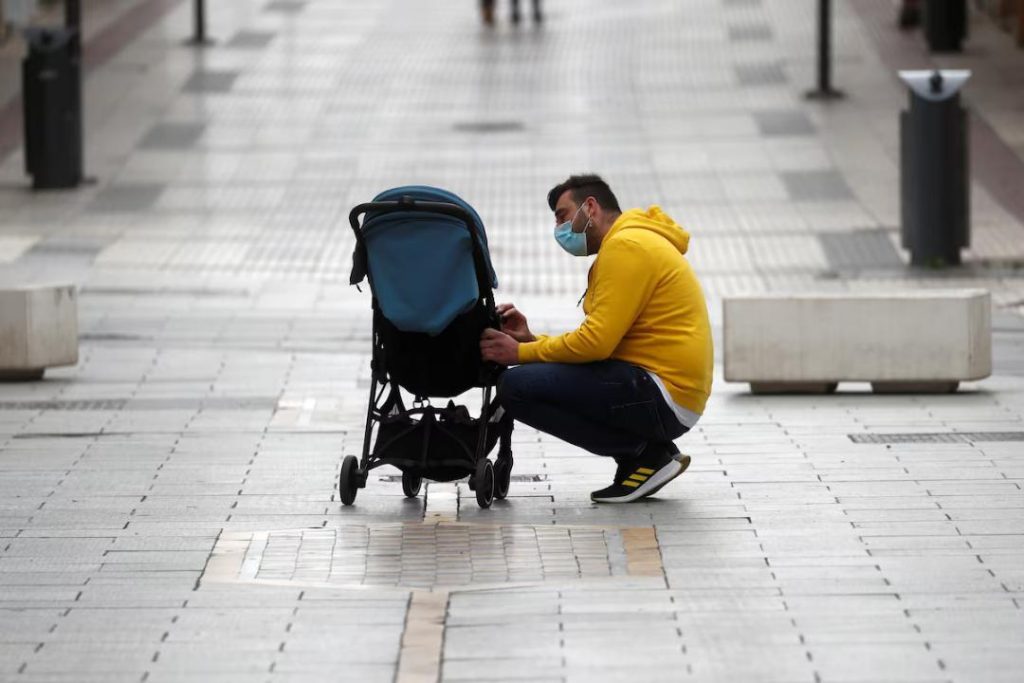
Spain to Offer 17 Weeks of Parental Leave to Both Mothers and Fathers
In a significant move towards promoting gender equality and supporting families, Spain has announced plans to extend its parental leave policy to 17 weeks, with both mothers and fathers eligible for paid time off after the birth of their child. This development is a major step forward for Spain, which is already one of the most generous countries in Europe when it comes to parental leave. The new policy will provide an additional week of paid leave for both parents, bringing the total number of weeks to 17.
As reported by Reuters, the new policy is a significant milestone in Spain’s efforts to promote gender equality and support families. “Spain is moving towards feminism…and there’d be no turning back,” said a Spanish minister, highlighting the country’s commitment to creating a more equal society.
Currently, Spain and Finland are the only EU countries that offer equal, fully-paid birth leave to both parents. The new policy will ensure that both mothers and fathers have the opportunity to take time off work to care for their newborn child, without incurring financial penalties. This is a significant departure from many other European countries, where mothers are often expected to take the majority of the leave, or where fathers are not entitled to any paid leave at all.
The benefits of extended parental leave are numerous. For mothers, it can help to reduce the risk of postpartum depression and anxiety, as well as promote bonding and attachment with their new baby. For fathers, it can help to promote a sense of involvement and responsibility, and can even have a positive impact on their mental and physical health. Additionally, extended parental leave can help to promote gender equality and challenge traditional gender stereotypes.
In Spain, the new policy will be implemented in 2026, and will apply to all parents who have a child born after January 1st of that year. The government has announced that it will provide financial support to families to help them cover the cost of living during the extended leave period. The exact details of the financial support package are still to be announced, but it is expected to be a significant investment in supporting families and promoting gender equality.
The decision to extend parental leave is part of a broader effort by the Spanish government to promote gender equality and support families. In recent years, the country has made significant progress on issues such as equal pay, reproductive rights, and violence against women. The government has also launched initiatives to promote gender equality in the workplace and to challenge traditional gender stereotypes.
The impact of the new policy is likely to be felt across Spain, as families and employers adjust to the new reality. For many parents, the extended leave will provide a welcome opportunity to spend quality time with their newborn child, without the financial stress of reduced income. For employers, the policy will require a significant adjustment, as they adapt to the new demands of managing a workforce with extended parental leave.
However, the impact of the policy will also be felt beyond Spain. As a leader in promoting gender equality and supporting families, Spain’s decision is likely to be closely watched by other European countries. It is also likely to put pressure on other countries to follow suit, as policymakers and employers recognize the benefits of extended parental leave for both parents and children.
In conclusion, Spain’s decision to offer 17 weeks of parental leave to both mothers and fathers is a major step forward for the country, and a significant milestone in the fight for gender equality. As the policy is implemented, it will provide a welcome opportunity for families to spend quality time together, and will promote a more equal society. As other countries watch and learn from Spain’s example, it is likely that the benefits of extended parental leave will be felt far beyond the borders of Europe.
Source:



